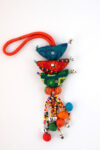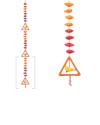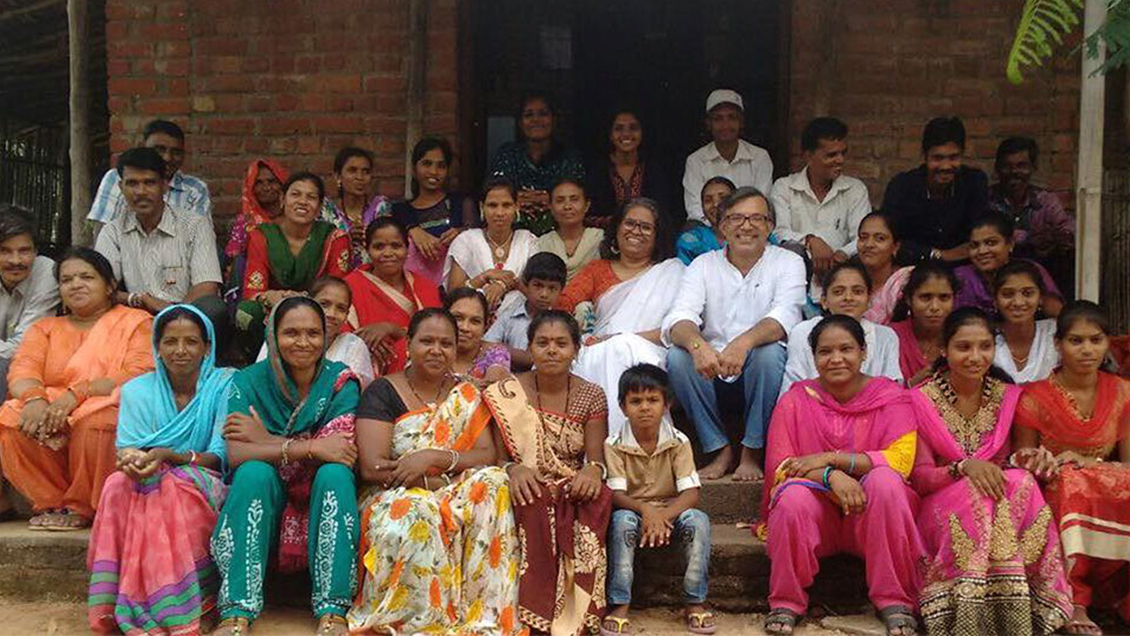Month: May 2022
SAHAJ: Simple Efforts To Increase Incomes Of Rural Women
You enter the place and you see pretty looking colorful beaded jewelry, bamboo articles, quilts, decorative handicraft goods & accessories and a bunch of women thoroughly enjoying themselves making those pieces. A fun place to work at -that is exactly the kind of impression you get when you walk into SAHAJ’s premises.
Situated in the Dahod district of eastern Gujarat, SAHAJ has been working towards its mission of “empowering tribal women by providing livelihood opportunities and choices for earning and living a better life” since 2001 as an established organization. It started informally in the year 1994 as a branch of N.M. Sadguru Water and Development Foundation. SAHAJ provides off-farm income generation opportunities to the rural women of Gujarat by making use of their handicraft skills and creating a niche market for tribal handicrafts.
From providing employment to 12 women artisans at the time of its inception to helping over 1400 artisans add significantly to their household income, SAHAJ has come a long way. SAHAJ has fair trade as its core value and believes in the way of trading wherein the producers benefit from the structure unlike conventional trade where the artisans are exploited.
Before getting the artisans started with the work, SAHAJ ensures that they have enough skills and are well trained to do their job in the best possible manner. SAHAJ organizes over 300 training sessions each year, reaching about 2000-2500 artisans producing different crafts. Alongwith the initial training sessions for beginners, SAHAJ offers skill upgrades, design workshops, bank linkages and awareness programs to help the artisans enhance their expertise. To keep its people motivated, SAHAJ lets the producer groups participate in their exhibitions as well. The producer groups visit the place of exhibitions and are taken on a day tour of the city on the last day. Participation in exhibitions is also a great learning experience for them in terms of interacting with new people, learning about consumer behavior and getting a taste of the urban life.
What sets SAHAJ apart from any other cottage industry is its “Cluster approach”. Keeping in mind the challenges that the village artisans face even while working part time, SAHAJ has made it easy for its people in common-craft groups to work together at ‘Common Facility Centers (CFC)’. CFCs are support-centers where artisans working on a particular craft come together and work. This makes it easy for them to leverage each others’ expertise in producing high quality craft. Also, the decentralization of these centers makes it easy for the artisans to participate since all of them do not have to travel to Dahod. At present, SAHAJ has 7 successful CFCs in Gujarat.
For developing products that appeal to the masses, SAHAJ does its own research work. It has a design cell where various designers from NIFT and NID give their recommendations on products like jewelry, furniture, garments and toys from time to time.
True leadership lies in making yourself redundant in the process. That’s exactly what SAHAJ does with its employees. It encourages their independence in the long run by providing them many business development services. SAHAJ provides the artisans opportunities to undergo extensive training sessions and become a part of every aspect of production. SAHAJ also provides them with business infrastructure and support services like finance, education and counseling.
SAHAJ has helped thousands of women in Gujarat find pride and a higher social status. One such woman is Shardaben Kochra who says “I used to migrate as a construction labor before I started my work with SAHAJ at the age of 31 years. I am at present the head of 50 women working mainly in stitching and embroidery. The financial stability that I have gained by working with SAHAJ has allowed me to educate my children in private schools.”
There are many such happy stories and many more are yet to be created. It wouldn’t be long before other states start replicating SAHAJ’s model and improve the quality of rural life of their people.
To know more about SAHAJ, you can go to: www.sahajindia.org

 SAHAJ India Keychain Bird...
SAHAJ India Keychain Bird...  Sahaj Classic Series Drap...
Sahaj Classic Series Drap...  Sahaj multicolors Trigang...
Sahaj multicolors Trigang... 
 Block Printing – From 4000 Years Ago To Sahaj
Block Printing – From 4000 Years Ago To Sahaj  Beadwork – In Depth
Beadwork – In Depth  SAHAJ: Simple Efforts To Increase Incomes Of Rural Women
SAHAJ: Simple Efforts To Increase Incomes Of Rural Women 
Recent Comments